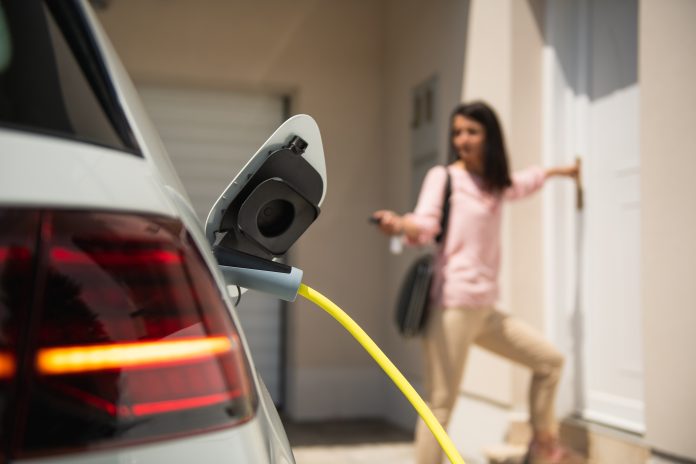In most areas of the U.S., charging an electric vehicle (EV) costs about $1 or $2 per gallon of gasoline [as of January 5]. The national average for an “eGallon” is $1.41, less than half the current price of gas, which is $3.09 per gallon.
For example, in Connecticut, charging an EV costs the equivalent of $2.53 per gallon of gas. While in Utah, charging an EV costs around $1.02 per gallon of gas. Additionally, in Wisconsin, charging an EV costs the equivalent of $1.24 per gallon of gas.
The Department of Energy came up with the “eGallon” concept by taking into account the following factors:
– The average miles per gallon for a comparable gasoline-powered car.
– The average kilowatt-hour per mile for an electric vehicle.
– The cost of electricity.
According to research discovered by Yale Climate Connections, multiplying these three figures results in the cost of driving an EV over the same distance a conventional car would travel on a single gallon of gas. The most affordable and environmentally friendly way to get around is by bicycle, on foot, or on public transportation. However, EVs are less expensive to operate than comparable gasoline-powered vehicles and produce less carbon emissions, making them a good choice for personal transportation needs.
At less than $1 per gallon-equivalent, Washington State and Louisiana have the lowest residential energy prices, making them the most affordable states to charge an EV. In Washington state, gas prices are more than $4 per gallon, so driving an EV is particularly cost-effective. Ultimately, EV charging costs less than 25% of the cost of gas.
Because power is more expensive in Hawaii and California than in other states, charging an EV there is significantly more costly than in other places. Nevertheless, fueling an EV is still less expensive because gasoline is also expensive in those areas.



